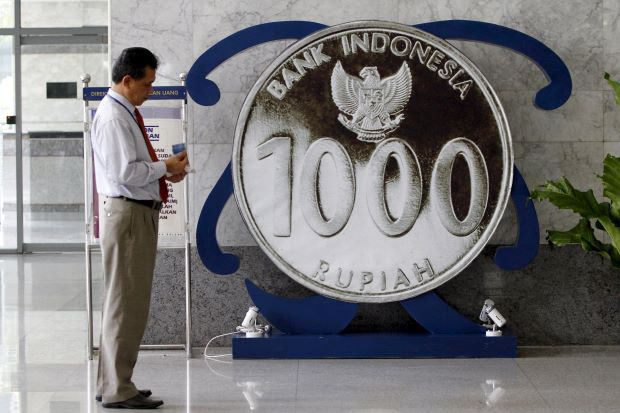Indonesia’s central bank, which has cut its benchmark interest rate at all three meetings so far this year, is expected to hold it steady on Thursady (www.thestar.com.my)
The meeting is the first since Bank Indonesia (BI) announced it will be changing its benchmark in August, a move taken after the recent rate cuts have failed to get banks to lower their lending rates. The current benchmark, a reference rate for 12-month operations, is 6.75%. Starting Aug 19, BI will use the one-week reverse repurchase rate, now at 5.50%, as the benchmark to better guide short-term market rates.
“The central bank will likely remain on easing bias in the coming months, but it is likely to stay on hold during the transition period,” UOB said in a research note. BI officials say the benchmark change doesn’t represent a monetary easing. The central bank will announce the level of the two rates together during the transition period, starting on Thursday. All but one of 24 analysts surveyed by Reuters said BI, which has cut the benchmark 25 basis points at the last three monthly meetings, will likely hold it steady on Thursday. The other analysts forecast another 25 basis point cut. Analysts also expect the deposit facility and lending facility rates, which act as the floor and ceiling of the overnight interbank rate, to remain at 4.75% and 7.25%, respectively.
On Friday, senior deputy governor Mirza Adityaswara said BI will be cautious in its next easing move. He also said that although the new benchmark is aimed at influencing the money market, the central bank will continue to use an inflation targeting framework to determine its monetary stance. It targets inflation at 3%-5% this year. Annual inflation in South-East Asia’s largest economy was steady at 4.45% in March Aside from the rate cuts to try to boost economic growth, which last year was the slowest since 2009, BI has brought down the reserve requirement ratio for banks, effectively injecting into them some 52 trillion rupiah (US$3.96 billion).
Following the third rate cut in March, BI officials said their focus now is to “transmit” policy loosening to the market, as banks had not reduced lending rates as much as desired. “Provided that the central bank is eventually successful in getting commercial banks to lower their lending rates and boosting credit, we see (the benchmark) shift as being an important development in efforts to boost economic growth,” said Gareth Leather, senior Asia economist for Capital Economics. – Reuters, (www.thestar.com.my)


